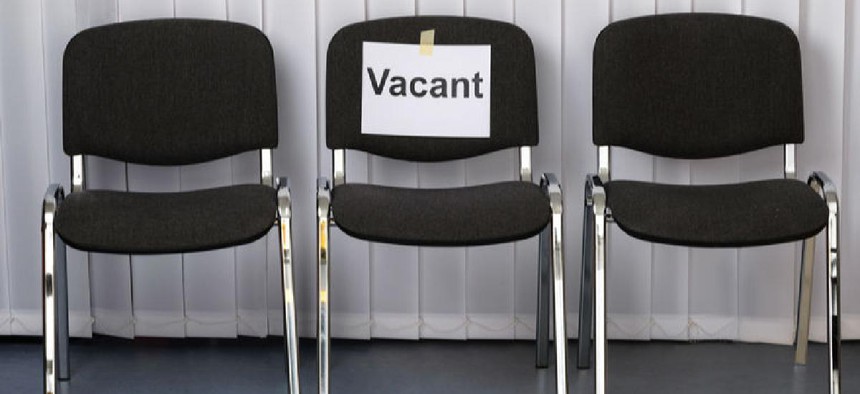Does the Vacancies Act really matter?

The law is supposed to prevent acting officials taking on Senate-confirmed roles indefinitely, but the statutory language is vague and enforcement is uneven.

The Federal Reform Vacancies Act is intended to prevent administrations from relying on acting employees for politically appointed positions and circumventing Senate approval.
Under the law, decisions made by an acting agency head found to be serving in violation of the act could be potentially be voided. In practice, however, the law's language is vague and its precedent is limited.
Jeff Neal, former chief human capital officer at the Department of Homeland Security and a 33-year veteran of the federal workforce, said overturning an official's decisions through the Vacancies Act would require proving two things: that the official in question was involved in making the decision and that the authority in making that decision was a responsibility that couldn't have been carried out by any other position.
"That's a pretty high bar," said Neal, who is now a senior vice president with ICF.
The recent departure of Department of Veterans Affairs Secretary David Shulkin -- and President Donald Trump's choice of the Department of Defense's undersecretary for personnel and readiness Robert Wilkie to serve as the acting head, rather than the number two at VA --has called renewed attention to the law's implications.
The White House has asserted Shulkin resigned -- Shulkin says he was fired -- and the disagreement has led some to posit the semantics surrounding his exit changes the interpretation of the Vacancies Act.
The law itself covers a political appointee who "dies, resigns or is otherwise unable to perform the functions and duties of the office."
"Does [the conflicting account] muddy the waters a little bit? Probably. But I think it would be a stretch to say the 'otherwise…' doesn't come into play," said Neal.
Even if a violation of the Vacancies Act is proved to have occurred, overturning actions made by an acting executive is even trickier.
Valerie Brannon, a legislative attorney with the Congressional Research Service, noted in an October 2017 report that there aren't a lot of "nondelegable" duties.
"In many circumstances, an agency officer or employee who has not been appointed to a particular advice and consent position could perform many, if not all, of the responsibilities of that position," she wrote. "This limitation on the scope of the Vacancies Act could potentially undermine the purpose of the statute: to prevent the Executive from appointing 'officers of the United States' without Senate advice and consent."
Further, in a report accompanying the Vacancies Act, the Senate Committee on Government Affairs wrote: "non-delegable duties of an agency head are not addressed in this legislation because the Committee expects that there will never be a case where a nomination for these positions is not timely submitted."
There's one Supreme Court case that's on point, but it deals with a specific section of the Vacancies Act that prohibits acting agency chiefs from continuing in lead roles if they are nominated by the president to get that same top job on a permanent basis.
As it pertains to VA, Shulkin's replacement comes as the department has been preparing to transition from its homegrown Vista health record system to acquire a $10 billion commercial replacement offered by Cerner. The deal has already been on hold for a while. In the event an acting official is the one to sign off on the new deal, would that amount to a voidable action?
"It's always safer to have decisions made by an appointee who is Senate-confirmed for that role," Neal said.
In the event an acting official signed off on a contracting decision, Andrew Hunter, director of the Center for Strategic and International Studies' Defense-Industrial Initiatives Group, said that a rival could cite a Vacancies Act violation as grounds for protest.
"If the company has an economic incentive to dispute a government decision, they will seize on any and all grounds that present themselves," Hunter said.
NEXT STORY: Why IT modernization needs more women


